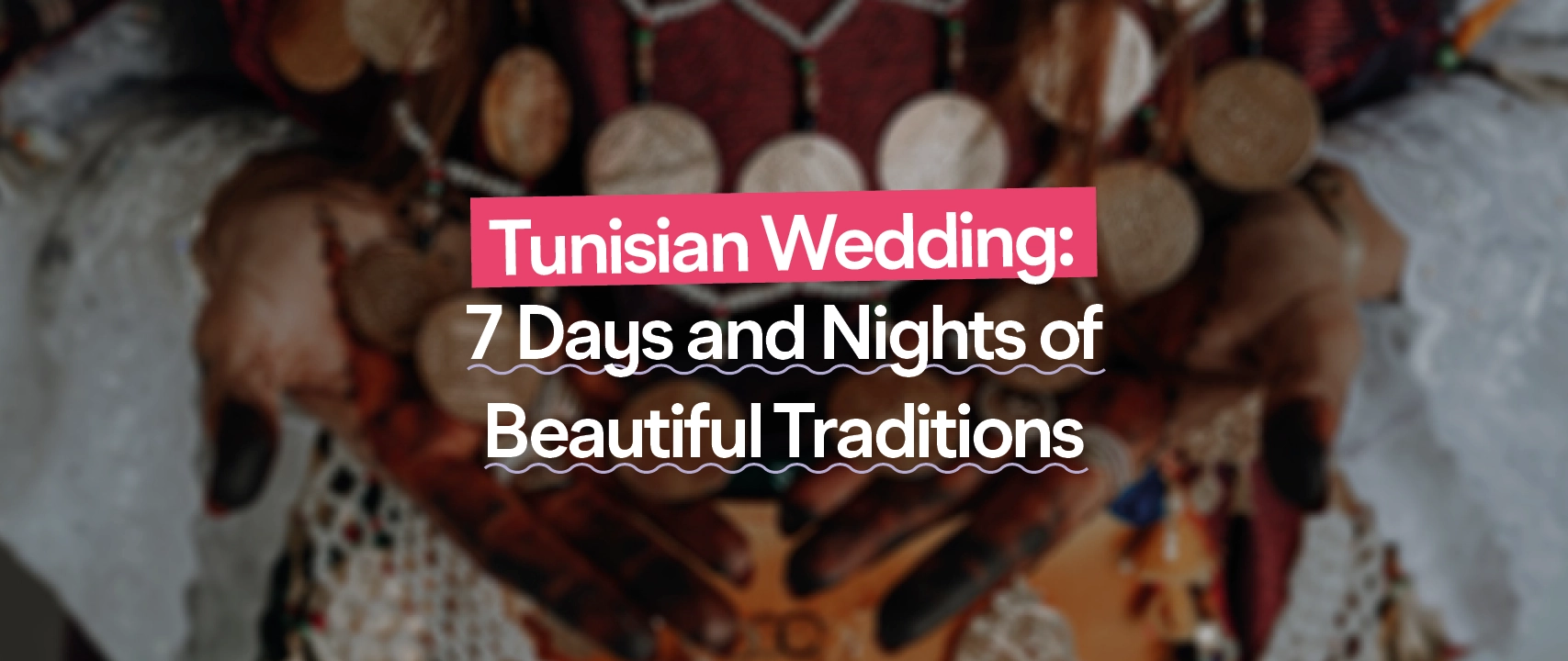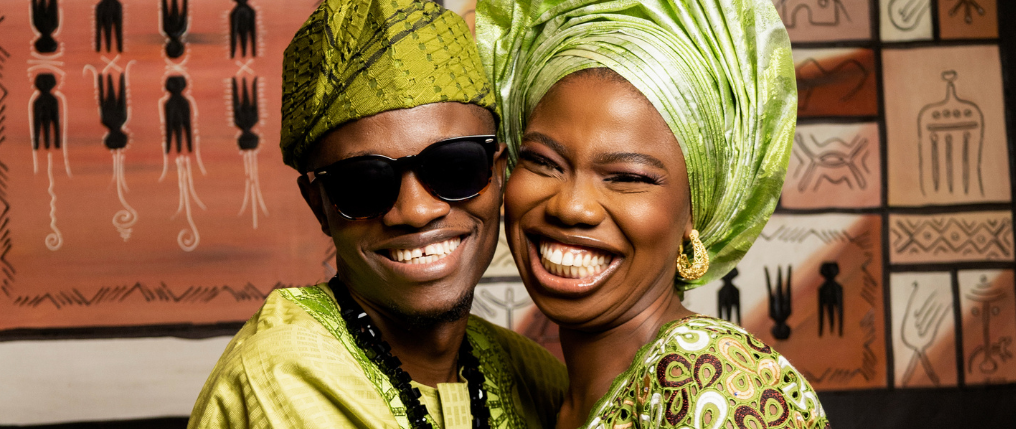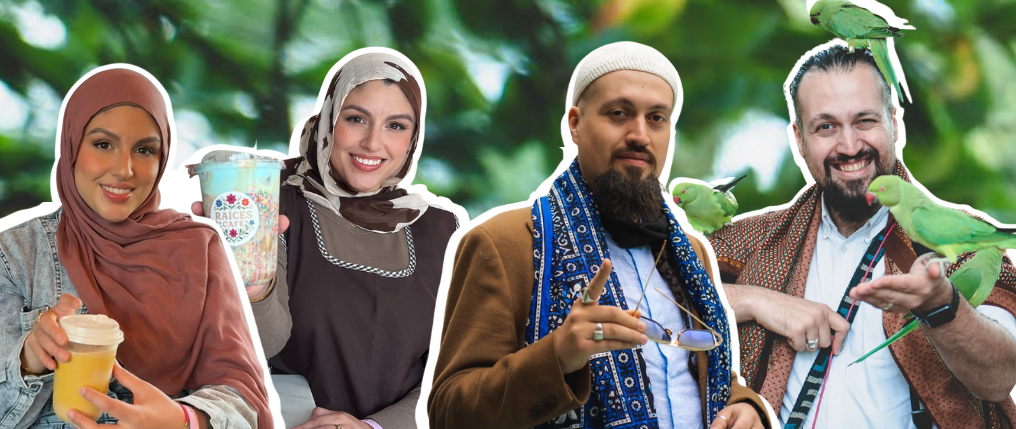
Tunisian wedding: 7 days and nights of beautiful traditions
November 14, 2023

Lasting for a few days, a Tunisian wedding is an unforgettable extravaganza that weaves together various pre-wedding ceremonies, beauty rituals, and joyous festivities.


Looking for your soulmate?
You won’t find your soulmate on this blog post but you might find them on Muzz - the world’s biggest Muslim dating and marriage app.
In this blog post, we will delve into the rich cultural tapestry and time-honored traditions that make Tunisian weddings a true celebration of love, family, and community.
Whether you are a fellow Tunisian, an admirer of cultural diversity, or someone curious to explore the traditions of this enchanting North African nation, this blog post promises to be a delightful ride into the heart of Tunisian wedding customs. Let’s dive in and discover the magic together!
Table of contents:
How many days does a Tunisian Wedding last?
- Day 1 – Saboun
- Day 2 – Hazzén el Farch
- Day 3 – Hammam
- Day 4 – Henna Ceremony
- Day 5 – Harkous
- Day 6 – Outeya
- Day 7 – Dokhla
The “Gatari” and “Hidjeb” ceremonies
The conditions required for the Tunisian wedding
How many days does a Tunisian Wedding last?
Wanna know how long a Tunisian wedding lasts? Traditionally, it goes on for 3 to 7 days! But hold up, it can change depending on where you are and what you and your family prefer.
So, you gotta keep that in mind, okay? The celebration is super important in Tunisian culture, and it’s packed with events and ceremonies.
Related content: The complete guide to a Muslim wedding
But hey, times change, and so do traditions. So, some modern weddings might be a bit different in how long they last. Just do what feels right for you!
7 days of getting married

Let’s get ready to rock and roll through the fabulous 7-day journey of a Tunisian wedding!
Day 1 – Saboun
It all begins with a bang! The bride’s squad, including aunts, cousins, and friends, come together to help her create the ultimate trousseau. They iron, decorate, and pack all the essential stuff like household linen, kitchen goodies, appliances, and furniture for the new home!
Related content: How to prepare a Moroccan wedding
Day 2 – Hazzén el Farch
The excitement continues! The bride’s helpers from the previous day show off their unpacking skills. They showcase the trousseau to the whole family and everyone pitches in to put everything in place like a well-coordinated team!
Day 3 – Hammam
It’s pampering time, ladies! The beautiful bride covers her face with a veil and heads to the hammam with her female friends, singing and clapping away. There, she gets the royal treatment with scrubs, masks, and hair care, making her shine like a superstar!
Day 4 – Henna Ceremony
Time for some traditional charm! The bride dons a stunning red dress, and henna is applied to her hands and feet. Henna symbolises good luck on her new journey as a wife!
Related content: Attending a Henna Party as a Guest? Here’s Your Essential Guide
Day 5 – Harkous
Guess what? The henna fun continues! A second layer of henna is applied with fabulous designs, while the bride gets a sugar hair removal session, leaving her with radiant skin. Ouch, but totally worth it!
Day 6 – Outeya
Now the showstopper moment! The glowing bride, dressed in four different traditional outfits, wows the guests during the “Laaroussa party”. Sorry, guys – men aren’t invited to this one! Lots of pictures, poses, and stunning beauty on display!
Day 7 – Dokhla
And here it is – the grand finale! The bride and groom come together, surrounded by family, friends, and guests, for the big celebrations. Both are decked out in glorious traditional attire, looking like royalty. They sit on a beautifully decorated seat to start the show in style!
The “Gatari” and “Hidjeb” ceremonies

The “Gatari” and “Hidjeb” ceremonies are traditional pre-wedding events in Tunisian weddings. These events usually occur a day or two before the wedding day and are specific to certain regions and communities in Tunisia. The customs and practices can vary, but here’s an overview of each ceremony:
The Gatari Ceremony
The Gatari ceremony is more common in the southern regions of Tunisia, particularly among the Berber communities. It is a celebratory event where the groom’s family visits the bride’s house to bring gifts and celebrate together.
Related content: Algerian wedding: 8 traditions you don’t want to miss
The Hidjeb Ceremony
Now, this one’s more common in the northwestern regions, mostly among the Andalusian communities. It’s a formal announcement of the couple’s plan to get hitched. Yep, it’s time to put a ring on it! They exchange rings and get showered with blessings for their future happiness.
Just so you know, not all Tunisian weddings have both of these pre-wedding ceremonies. It all depends on family traditions and regional customs. So, some weddings may keep it simple and skip these specific events.
The Wedding Day

On the wedding day in Tunisia, the main wedding ceremony takes place, and it is the most significant event of the entire wedding celebration. The wedding day is a joyous occasion where the couple officially ties the knot in front of their families, friends, and community.
Here’s what typically happens on the wedding day:
Preparation
Both the bride and groom prepare for the day separately. The bride may have a makeup artist and hairdresser to help her get ready, while the groom also takes care of his appearance.
Procession of the Groom (Zaffa)
The groom, accompanied by his family and friends, leads a procession to the bride’s house or the venue where the wedding will take place. This is a lively and joyous procession with music, singing, and dancing. Traditional musical instruments like drums, flutes, and tambourines are often played.
Related content: What happens at an Arabic wedding
Welcoming the Groom
Upon arrival, the groom is welcomed by the bride’s family and guests. There may be playful rituals, where the groom must demonstrate his love and commitment to the bride before he is allowed to see her.
The Wedding Ceremony
The wedding ceremony takes place, during which the couple exchanges their vows, and are officially pronounced husband and wife. The ceremony can be conducted by a religious figure, such as an Imam for Muslim weddings, or by a civil officiant for secular weddings.
Rings Exchange
During the ceremony, the couple may exchange rings as a symbol of their love and commitment to each other.
Signing the Marriage Contract
In Muslim weddings, the official marriage contract (Nikah) is signed by the couple and witnesses. This legalizes the marriage according to Islamic law.
Related content: Everything you need to know about Nikkah
Blessings and Prayers
Religious blessings and prayers are offered for the couple’s happiness, prosperity, and successful marriage.
The Walima ceremony

The reception or Walima ceremony is one of the most anticipated parts of a Tunisian wedding. It usually takes place after the main wedding ceremony and is a grand celebration where family, friends, and guests come together to rejoice in the newlyweds’ union.
Here’s what typically happens at the reception:
Entrance of the Newlyweds
Walima begins with the entrance of the bride and groom as they are welcomed by cheers and applause from the guests. This is often accompanied by music and a grand introduction.
First Dance
The bride and groom may have their first dance as a married couple. This is a special and sentimental moment, and it is common for guests to gather around the dance floor to watch and celebrate with them.
Feasting and Banquet
A lavish banquet is served with a variety of traditional Tunisian dishes and delicacies. Guests enjoy multiple courses of delicious food and desserts throughout the reception.
Cutting the Wedding Cake
Like in many weddings, there’s often a wedding cake that the couple cuts together, and the guests enjoy the slices. This is typically done after the main meal.
Related content: 7 traditions to know before attending a Lebanese wedding
Speeches and Toasts
Family members and close friends may give speeches and toasts to congratulate the couple and share heartfelt wishes for their future together.
Dancing and Entertainment
Music and dancing are a significant part of the reception. There may be live bands or DJs playing traditional tunes and modern hits, getting everyone on the dance floor to celebrate the joyous occasion.
Traditional Dance Performances
In some weddings, there may be traditional dance performances or other regional folk dances, performed by skilled dancers or family members.
Related content: What to expect at an African wedding as a first-time guest
Guest Participation
Throughout the reception, guests are encouraged to participate in the festivities, join the dancing, and celebrate with the couple.
Gifting and Best Wishes
Guests present gifts to the newlyweds to express their love and support. Additionally, guests may individually approach the couple to offer personal blessings and best wishes.
Related content: 6 Egyptian wedding traditions worth knowing about
Favors for Guests
It’s common for the couple to give small gifts or wedding favors to their guests as tokens of appreciation for their presence and participation in the celebration.
Photographs and Memories
Professional photographers and videographers capture the special moments of the reception, ensuring that the couple has lasting memories of their wedding day.
The conditions required for the Tunisian wedding

In Tunisia, like in many countries, there are specific legal requirements and conditions that must be met for a marriage to be legally recognized.
These conditions are governed by Tunisian Family Law, which is based on Islamic principles and traditions.
Here are the main conditions required for a marriage to be valid in Tunisia:
- Age: The legal age for marriage in Tunisia is 18 years for both men and women. However, a judge may grant an exception for those who are at least 16 years old if there are valid reasons for the marriage.
- Consent: Both parties must freely and willingly consent to the marriage. Forced marriages are prohibited and considered invalid.
- Mental Capacity: Both the bride and groom must be mentally capable of understanding the consequences of marriage and providing informed consent.
- Legal Capacity: Neither the bride nor the groom should be currently married to another person at the time of the marriage. Polygamy is not allowed under Tunisian law.
- Guardian’s Consent: If the bride is under 18 years old, she must obtain consent from her legal guardian (usually her father). If the father is deceased or unavailable, the guardian’s role may be assumed by another male relative.
- Witnesses: Two adult male witnesses (or one male and two female witnesses) must be present during the marriage ceremony to attest to the marriage.
- Marriage Contract (Nikah): The marriage must be formalized through a marriage contract signed by the bride, groom, and witnesses. This contract outlines the rights and responsibilities of both parties.
- Mahr: The groom is required to give a dowry (mahr) to the bride as part of the marriage contract. The mahr can be a gift of money or other valuable items, and it is considered the bride’s exclusive property.
- Religious Ceremony: For Muslim couples, the marriage must be officiated by a religious authority, such as an Imam, who conducts the religious marriage ceremony (Nikah).
- Civil Registration: After the religious ceremony, the marriage must be registered with the civil authorities to be legally recognized.
Conclusion
In conclusion, a Tunisian wedding is an awe-inspiring celebration that spans seven magical days, each filled with unique customs and traditions that hold profound significance in Tunisian culture. From the heartfelt preparations of the bride’s trousseau on the first day to the grand “dokhla” ceremony on the seventh day, these weddings are a testament to the richness of Tunisian heritage and the importance of family bonds and community.
Throughout this blog post, we have explored the beauty of “Hammam,” the artistry of henna on the “Harkous” day, and the breathtaking elegance of the “Outeya” ceremony. These cherished rituals not only celebrate the union of two souls but also reflect the profound love and support of family and friends.

